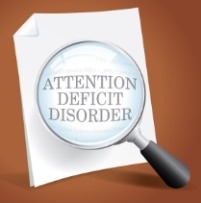Posts Tagged ‘neurocognitive-assessments’
Is working memory training the priority for ADHD patients?
There are several reasons why it is important to develop evidence-based ADHD treatments in addition to medication and behavior therapy. Not all children benefit from medication, some experience intolerable side effects, and many continue to struggle despite the benefits provided by medication.
Read MoreNeurocognitive assessments and sports concussions
Concussion effect ‘spans decades’ (BBC) — “People concussed in their youth show subtle signs of mental and physical problems even more than 30 years later, say Canadian researchers.” — “Dr Louis de Beaumont, who led the study, said: “This study shows that the effects of sports concussions in early adulthood persist beyond 30 years post-concussion,…
Read MoreUpdate: Global Consortium for Neurocognitive Fitness Innovation
As mentioned before, the World Economic Forum asked me to write “an 800 words summary of your most compelling actionable idea on the challenges of gerontology”, in preparation for the Inaugural Summit of the Global Agenda that will take place November 7 to 9th in Dubai.A good number of SharpBrains readers and clients offered their…
Read More
